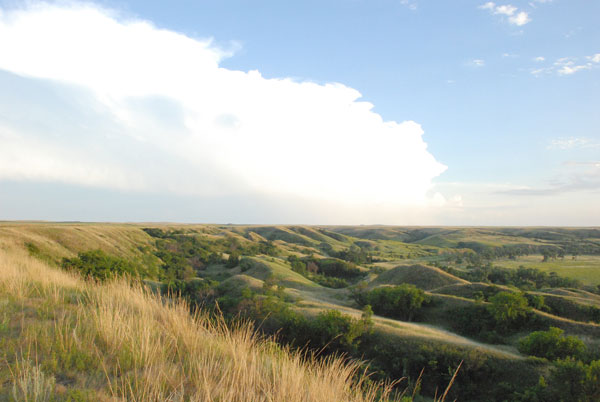Sustainability has become a buzz word
Consumers are focusing on sustainability in food production.
December 30, 2015

Sustainability has become a buzz word in the beef industry for good reason. Like it or not, your immediate customers, those who process beef such as Tyson, JBS, Cargill and other packers, and those who sell beef to the end consumer, like Walmart, McDonald’s and many others, have concluded that beef sustainability is an important issue. They are focused on continuous improvement in the ecological, economic, and social aspects of beef production because they believe it is critical to the long-term viability of the beef industry.
A most basic calculation has been made by many of the beef industry’s major customers; if they want to be in the business of selling beef over the next 25, 50 or 100 years, they must sell a product consumers feel good about buying.
Marketing studies have shown consumers expect the food they purchase, including beef, to be environmentally sound (doesn’t harm nature), financially viable (farmers receive a fair price) and is socially responsible (supports local communities, animals are well cared for and is wholesome and nutritious).
But here’s the catch; an increasingly influential and vocal segment of consuming public expects those in the supply chain, which includes ranchers, to build those attributes into the beef they produce. And when this consuming segment is led to believe that the food they buy doesn’t meet their expectation, there is a noticeable negative reaction leading to action. Think of banning sow crates and the requirement for cage-free eggs which have become mandated management practices in a growing number of states.

BEEF Seedstock 100 List
Looking for a new seedstock provider? Use our UPDATED Seedstock 100 listing to find the largest bull sellers in the U.S. Browse the list here.
In this evolving Internet age, consumers are more aware, have more choices and are expressing greater expectations than ever before. And the beef industry must continue to find ways to accommodate the consumers of the 21st century.
Around the world, the beef value chain is collaborating to find ways to meet the modern consumer’s expectations. In Brazil, the Roundtable for Sustainable Beef has been operating for nearly eight years. To our north, the Canadian Roundtable for Sustainable Beef was formed almost two years ago, and here in the U.S., the U.S. Roundtable for Sustainable Beef was launched this year. All of these multi-stakeholder initiatives have the intent to clarify the definition of sustainable beef, and to act as a catalyst for working together to support continuous improvement of the sustainability of beef production.
Even with the increased discussion about sustainability across the beef value chain, to date there has been little explanation of what sustainability means from a practical management perspective. The question remains—how does the average beef producer get started on the road of continuous improvement and apply the principles of sustainable management?
In our 21st century beef production system, where the consumer is king and sustainability is an expectation not a request, decisions about bull selection, grazing management, water management, calving season date, feed conversion, red meat yield, animal husbandry practices and others take on increased meaning in the context of sustainability. A realization that these management decisions play a role in the continuous improvement of the sustainability of the beef value chain is a starting point that producers and other value chain participants must understand.
Bryan Weech is a consultant and adviser on sustainable agricultural projects. Contact him at [email protected].
You might also like:
7 ranching operations who lead in stewardship, sustainability
Why we need to let Mother Nature select replacement heifers
Photo Gallery: Laugh with Rubes cow cartoons
Beta agonists wrongly blamed for fatigued cattle syndrome
Lessons from the 2015 cattle market wreck
You May Also Like


.png?width=300&auto=webp&quality=80&disable=upscale)
